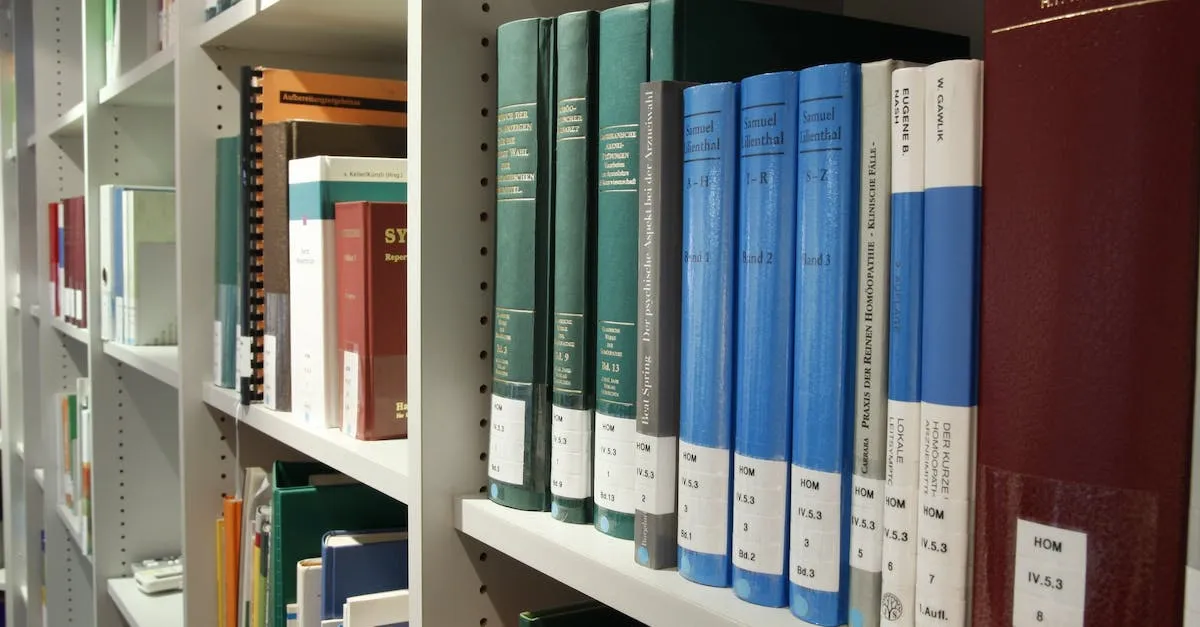The Top 10 Statistics Books For Aspiring Data Scientists
Statistics and data science go hand in hand. Mastering statistical concepts and methods is essential for any aspiring data scientist.
If you’re short on time, here’s a quick answer: Some of the best statistics books for learning data science include Introduction to Statistical Learning, Elements of Statistical Learning, Bayesian Statistics the Fun Way, and Think Stats.
In this comprehensive guide, we’ll highlight the top 10 statistics books that provide the foundation you need to excel in data science. We’ll overview beginner-friendly introductions, rigorous textbooks, Bayesian statistics guides, and more.
Best Introductory Statistics Books
Introduction to Statistical Learning
If you’re an aspiring data scientist looking for a comprehensive introduction to statistics, “Introduction to Statistical Learning” is a must-read. This book, written by Gareth James, Daniela Witten, Trevor Hastie, and Robert Tibshirani, provides a practical approach to understanding statistical concepts and their applications in real-world scenarios.
It covers topics such as linear regression, classification, resampling methods, and unsupervised learning. The authors provide clear explanations, accompanied by examples and exercises to reinforce your understanding.
This book is highly regarded in the field and has been widely used in academic courses and data science programs.
Statistics in a Nutshell
For those who prefer a concise yet comprehensive guide to statistics, “Statistics in a Nutshell” by Sarah Boslaugh is an excellent choice. This book covers the fundamental concepts of statistics in an accessible manner, making it suitable for beginners.
It provides a solid foundation in statistical principles, probability, hypothesis testing, and data analysis. The author presents the information in a clear and engaging style, making it easy for readers to grasp complex concepts.
“Statistics in a Nutshell” also includes practical examples and exercises to enhance your learning experience.
Naked Statistics
If you’re looking for a statistics book that is both informative and entertaining, “Naked Statistics” by Charles Wheelan is the one for you. This book takes a unique approach to teaching statistics by using real-life examples and anecdotes to illustrate key concepts.
Wheelan’s witty writing style keeps readers engaged and entertained throughout the book. “Naked Statistics” covers a wide range of statistical topics, including probability, regression analysis, and experimental design.
Whether you’re new to statistics or just need a refresher, this book will help you develop a deeper understanding of the subject in an enjoyable way.
These books provide a solid foundation in statistics and are highly recommended for aspiring data scientists. Whether you prefer a comprehensive textbook or a concise guide, these books will equip you with the knowledge and skills necessary to excel in the field of data science.
Most Rigorous Textbooks
Elements of Statistical Learning
One of the most highly regarded textbooks in the field of data science is Elements of Statistical Learning. Authored by Trevor Hastie, Robert Tibshirani, and Jerome Friedman, this book offers an in-depth exploration of statistical learning methods.
It covers topics such as linear regression, classification, resampling methods, and more. With its rigorous approach and comprehensive coverage, this textbook is a must-have for aspiring data scientists.
Introduction to Probability
Another essential textbook for aspiring data scientists is Introduction to Probability. This book, written by Dimitri P. Bertsekas and John N. Tsitsiklis, provides a solid foundation in probability theory, which is crucial for understanding statistical concepts.
It covers topics such as random variables, probability distributions, and stochastic processes. With its clear explanations and numerous examples, this textbook is highly recommended for those looking to develop a strong understanding of probability.
All of Statistics
All of Statistics by Larry Wasserman is a comprehensive textbook that covers a wide range of statistical concepts. It offers a balanced mix of theory and applications, making it suitable for both beginners and more advanced learners.
This book covers topics such as hypothesis testing, regression analysis, and Bayesian statistics. With its clear writing style and practical examples, it is a valuable resource for aspiring data scientists.
For more information, you can visit the official websites of these textbooks:
Top Books for Bayesian Statistics
Bayesian Statistics the Fun Way
One highly recommended book for learning Bayesian statistics is “Bayesian Statistics the Fun Way” by Will Kurt. This book takes a unique approach to teaching Bayesian concepts by using real-world examples and interactive exercises.
Kurt’s writing style is engaging and accessible, making complex topics easy to understand. From understanding the basics of Bayesian inference to applying it to various fields, this book offers a fun and practical learning experience for aspiring data scientists.
Think Bayes
“Think Bayes” by Allen B. Downey is another excellent resource for those interested in diving into Bayesian statistics. Downey’s book focuses on using computational methods to solve Bayesian problems. It provides clear explanations and step-by-step instructions for implementing Bayesian concepts in Python, making it a valuable tool for data scientists who prefer a hands-on approach.
With a strong emphasis on practical applications, “Think Bayes” is a must-read for anyone looking to enhance their understanding of Bayesian statistics.
Doing Bayesian Data Analysis
If you are looking for a comprehensive guide to Bayesian statistics, “Doing Bayesian Data Analysis” by John Kruschke is an excellent choice. This book covers a wide range of topics, from the basics of Bayesian inference to advanced modeling techniques.
Kruschke provides detailed explanations, examples, and code snippets to help readers grasp complex concepts. With its emphasis on practical applications and real-world data analysis, “Doing Bayesian Data Analysis” is a valuable resource for aspiring data scientists.
These three books provide different perspectives on Bayesian statistics, catering to various learning styles and preferences. Whether you prefer a fun and interactive approach, a hands-on computational approach, or a comprehensive guide, these books have you covered.
Remember, learning Bayesian statistics is a journey, and these books will serve as reliable companions along the way.
Key Takeaways for Learning Statistics
Statistics is a fundamental component of data science, and developing a strong understanding of statistical concepts is crucial for aspiring data scientists. Here are some key takeaways to keep in mind when embarking on your journey to learn statistics:
1. Start with the basics
Before diving into complex statistical models and techniques, it’s important to grasp the foundational concepts. Begin by understanding measures of central tendency, such as mean, median, and mode, as well as measures of dispersion, such as standard deviation and variance.
2. Learn probability theory
Probability theory forms the basis of statistical inference. Familiarize yourself with concepts like independent and dependent events, conditional probability, and the laws of probability. Understanding probability theory will enable you to make accurate predictions and draw meaningful conclusions from data.
3. Master hypothesis testing
Hypothesis testing allows data scientists to assess the significance of their findings. Learn about null and alternative hypotheses, p-values, and confidence intervals. These concepts will help you determine whether your results are statistically significant or simply due to random chance.
4. Explore regression analysis
Regression analysis is a powerful statistical tool used to model the relationship between variables. Study linear regression, logistic regression, and other regression techniques to understand how to predict outcomes and analyze the impact of independent variables on a dependent variable.
5. Get familiar with data visualization
Statistics and data visualization go hand in hand. Learn how to effectively visualize data using graphs, charts, and other visual representations. This skill will help you communicate your findings in a clear and compelling manner.
6. Practice with real-world datasets
To truly understand statistics, it’s important to apply your knowledge to real-world datasets. Seek out datasets from various domains and practice analyzing them using statistical techniques. This hands-on experience will enhance your understanding and problem-solving skills.
7. Stay updated with the latest advancements
The field of statistics is constantly evolving, with new techniques and methodologies being developed. Stay updated with the latest advancements by reading research papers, attending conferences, and following reputable statistical websites and blogs.
8. Seek out resources and books
There are numerous resources available to help you learn statistics effectively. Consider investing in textbooks such as “Introduction to Statistical Learning” by Gareth James et al. or “The Elements of Statistical Learning” by Trevor Hastie et al.
These books provide comprehensive coverage of statistical concepts and their applications in data science.
9. Join online communities and forums
Connect with fellow data enthusiasts and experts in online communities and forums. Participating in discussions and asking questions will not only expand your knowledge but also provide valuable insights and perspectives from others in the field.
10. Practice, practice, practice
Statistics is a skill that improves with practice. Continuously challenge yourself by working on statistical problems, participating in Kaggle competitions, or conducting your own data analyses. The more you practice, the more confident and proficient you’ll become in applying statistical concepts to real-world scenarios.
Remember, learning statistics is a journey that requires patience and dedication. Embrace the challenge and enjoy the process of acquiring this essential skillset for a successful career in data science!
Conclusion
Statistics and data science are deeply intertwined disciplines. Mastering statistical concepts will provide you with the strong foundation needed to become an expert data scientist.
The books featured in this guide offer comprehensive introductions, rigorous textbooks, and focused guides on Bayesian statistics. As you build your data science knowledge, keep these essential statistics resources top of mind.







